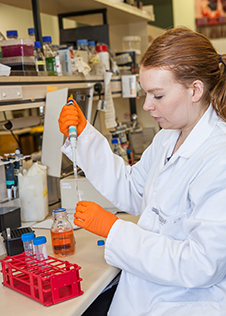 A Doctor of Philosophy (PhD) is a research degree in which three to four years of research is carried out, then written up as a thesis. The research must make a real contribution to knowledge in your chosen field. At least some of your work should be worthy of publication in the literature. During the course of your PhD you will develop the skills and confidence to become an independent researcher, but to be successful you must begin with a high level of independence, motivation, and perseverance.
A Doctor of Philosophy (PhD) is a research degree in which three to four years of research is carried out, then written up as a thesis. The research must make a real contribution to knowledge in your chosen field. At least some of your work should be worthy of publication in the literature. During the course of your PhD you will develop the skills and confidence to become an independent researcher, but to be successful you must begin with a high level of independence, motivation, and perseverance.
Skills developed during a Biochemistry PhD, such as problem-solving, critical reasoning, and project management, are readily transferable, which means employment prospects for graduates are good. Most science PhD graduates go on to have careers outside science, some have careers in academic or non-academic research. Only a very small percentage go on to lead their own academic research groups.
PhD study is not covered by student allowance or student loans. Most PhD candidates qualify for a PhD scholarship, which covers fees and moderate living expenses for three years. You must be an 'A' student to qualify for one of these, and they are available to overseas as well as domestic students.
The first step towards applying for a PhD is to contact a member of academic staff whose research is of interest to you. You may directly approach a staff member whose work is familiar to you, or you may choose to apply for one of the projects listed below.